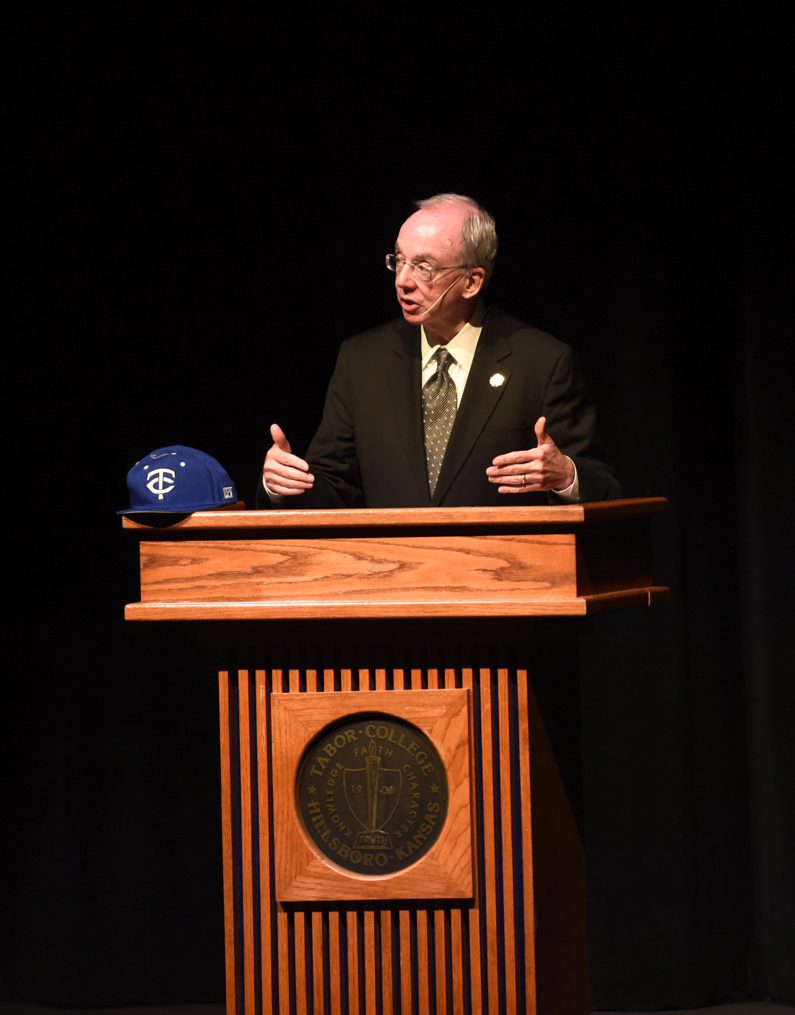 Dr. David Dockery challenged his audiences to understand and embrace a Christian worldview during his two-day stay on the Tabor College campus, March 31 and April 1.
Dr. David Dockery challenged his audiences to understand and embrace a Christian worldview during his two-day stay on the Tabor College campus, March 31 and April 1.
Regarded as an outstanding leader and senior statesman in the world of Christian higher education, Dockery currently serves as president at Trinity International University in Deerfield, Ill.
Addressing a turnout of 200-plus at a public presentation on Sunday evening, Dockery said the basis of a Christian worldview is to “love God with our mind.”
“How do we begin to understand what it means to love God with our mind?” he asked. “Becoming a thoughtful Christian means wanting to think well and think Christianly. It’s possible to be thoughtful without being Christian and it’s possible to be Christian without being thoughtful. They both must be done at once.”
Dockery said thoughtful Christians should be intellectually curious, and to grow in their understanding and appreciation of God. “And yet, several contemporary Christian thinkers have let a non-Christian philosophy have the upper hand with regard to understanding knowledge and rationality. Instead, the Gospel — the Christian faith itself — becomes the interpretative framework with which to make sense of all other knowledge and experience.”
Dockery spoke in various forums the following day, starting with Tabor’s chapel gathering.
“Christian educators need to recognize that the Christian faith is more than warm-hearted devotional practices, as important as these are for Christian formation,” Dockery told the students and faculty. “Our appeal is to have a more fully formed theologically shaped vision for our work — what we believe, how to think, how to teach, how to learn, how we write, how we read, how we engage culture, how we prepare students, how we act, and how we treat one another.”
Dockery said he laments “the loss of the soul” for the many formerly church-related colleges and universities in North America and Western Europe who have sold their Christian heritage.
“The abandonment of Christian faith has been traced to the pursuit of academic prestige and cultural respectability — in addition to a rapidly changing secular, pluralistic context,” he said. “Some church-related schools have managed to maintain their historic ties and denominational connections, but Christian faith has made few, if any, inroads in our modern culture.”
Dockery’s appearance at Tabor was sponsored by the Nachtigall Entrepreneurial Lectureship.
